Filter by

A Sales Tax for Alberta Why and How
Drawing on policy analysis, recent history, personal experiences, and conversations with Albertans, former politicians, and senior public servants, contributors build a decisive case for why a sales tax is a more efficient tax than corporate or personal income taxes. They examine energy revenues, household incomes, and political support as well as opportunities for improving democracy and reduc…
- Edition
- -
- ISBN/ISSN
- 981771992978.01
- Collation
- -
- Series Title
- -
- Call Number
- 6 x 9, 240 pages
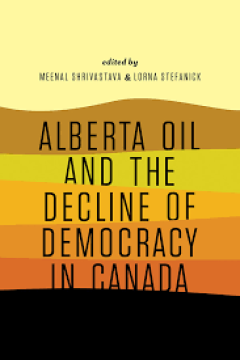
Alberta Oil and the Decline of Democracy in Canada
In probing the impact of Alberta’s powerful oil lobby on the health of democracy in the province, contributors to the volume engage with an ongoing discussion of the erosion of political liberalism in the West. In addition to examining energy policy and issues of government accountability in Alberta, they explore the ramifications of oil dependence in areas such as Aboriginal rights, environm…
- Edition
- -
- ISBN/ISSN
- 9781771990301
- Collation
- -
- Series Title
- -
- Call Number
- -
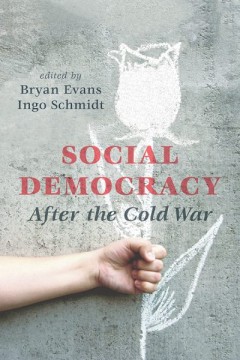
Social Democracy After the Cold War
Offering a comparative look at social democratic experience since the Cold War, the volume examines countries where social democracy has long been an influential political force—Sweden, Germany, Britain, and Australia—while also considering the history of Canada’s NDP and the emergence of New Left parties in Germany and the province of Québec. The case studies point to a social democracy…
- Edition
- -
- ISBN/ISSN
- 978-1-926836-87-4
- Collation
- -
- Series Title
- -
- Call Number
- 340 pages
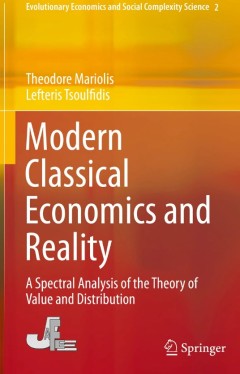
Modern Classical Economics and Reality
This book presents an in-depth, novel, and mathematically rigorous treatment of the modern classical theory of value based on the spectral analysis of the price–profit–wage rate system. The classical theory is also subjected to empirical testing to show its logical consistency and explanatory content with respect to observed phenomena and key economic policy issues related to various multip…
- Edition
- 1
- ISBN/ISSN
- 978-4-431-55003-7
- Collation
- XI, 242
- Series Title
- Evolutionary Economics and Social Complexity Science
- Call Number
- -

Knowledge Capture in Financial Regulation: Data-, Information- and Knowledge-…
Eva Becker assesses the US financial crisis as a crisis of regulatory data, information and knowledge. Based on the Financial Crisis Inquiry Commission’s interviews as well her own interviews, and drawing on Capture Theory and recent reformulations thereof, she develops “knowledge capture” as a theoretic framework to assess financial regulation under conditions of 21st century complexity.
- Edition
- -
- ISBN/ISSN
- 978-3-658-13666-6
- Collation
- -
- Series Title
- -
- Call Number
- -
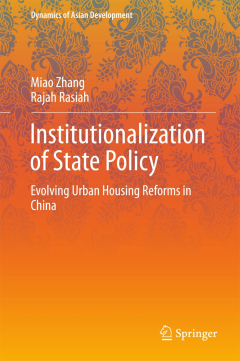
Institutionalization of State Policy
Using fresh evidence and a novel methodological framework, this book sheds light on how institutions have driven economic reform in China's urban housing sector. The book systematically analyzes the developmental role of the state in China, with rich empirical evidence to show how decentralization has brought about significant participation by the different levels of government with the central…
- Edition
- -
- ISBN/ISSN
- 978-981-287-569-3
- Collation
- XIII, 133
- Series Title
- -
- Call Number
- 330 ZHA i

Social Democracy After the Cold War
Offering a comparative look at social democratic experience since the Cold War, the volume examines countries where social democracy has long been an influential political force—Sweden, Germany, Britain, and Australia—while also considering the history of Canada’s NDP and the emergence of New Left parties in Germany and the province of Québec. The case studies point to a social democracy…
- Edition
- -
- ISBN/ISSN
- 978-1-926836-87-4
- Collation
- -
- Series Title
- -
- Call Number
- 340
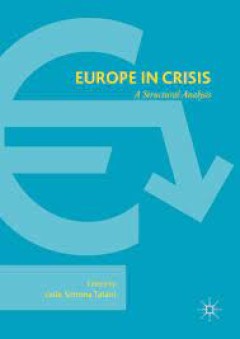
Europe in Crisis A Structural Analysis
With contributions from a range of expert scholars in European economics, politics and social policy, this edited collection analyses the crisis in Europe by exploring the structural asymmetries of the Economic and Monetary Union (EMU) and European monetary integration. Structured in two parts, the chapters in this book discuss the impact of the global financial crisis on the Euro area; the fai…
- Edition
- -
- ISBN/ISSN
- 978-1-137-57707-8
- Collation
- 2 b/w illustrations, 8 illustrations in colour
- Series Title
- -
- Call Number
- -

Alberta Oil and the Decline of Democracy in Canada
In probing the impact of Alberta’s powerful oil lobby on the health of democracy in the province, contributors to the volume engage with an ongoing discussion of the erosion of political liberalism in the West. In addition to examining energy policy and issues of government accountability in Alberta, they explore the ramifications of oil dependence in areas such as Aboriginal rights, environm…
- Edition
- -
- ISBN/ISSN
- 9781771990301
- Collation
- -
- Series Title
- -
- Call Number
- -
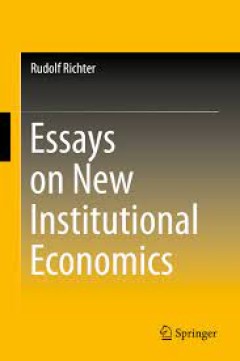
Essays on New Institutional Economics
This collection of essays comprises some of Rudolf Richter’s important contributions to research on New Institutional Economics (NIE). It deals with the central idea, principles, and methodology of New Institutional Economics and explores its relation to sociology and law. Other chapters examine applications of NIE to various microeconomic and macroeconomic issues in the face of uncertainty, …
- Edition
- -
- ISBN/ISSN
- 978-3-319-14154-1
- Collation
- 2 b/w illustrations
- Series Title
- -
- Call Number
- -
 Computer Science, Information & General Works
Computer Science, Information & General Works  Philosophy & Psychology
Philosophy & Psychology  Religion
Religion  Social Sciences
Social Sciences  Language
Language  Pure Science
Pure Science  Applied Sciences
Applied Sciences  Art & Recreation
Art & Recreation  Literature
Literature  History & Geography
History & Geography